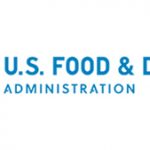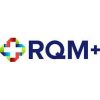For several years, postmarket surveillance (PMS) has been one of the industry’s most challenging and expensive cost centers because of high transactional volumes and the manual nature of tracking product quality, handling complaints and monitoring patient safety. Evolving regulatory requirements such as EU MDR and IVDR, as well as compounding downstream effects of the FDA’s Medical Device Single Audit Program, add further complexity to the PMS process and increase potential for surveillance inspections post-pandemic.
Register now for the EU IVDR Implementation Strategies Workshop | A Virtual Event | February 24–26, 2021Most medical device companies rely on one of two approaches to address their PMS requirements, with each creating different challenges. Homegrown databases and manual spreadsheets not only pose security concerns but also often introduce errors in formulas, transcription, filtering, and more—all of which slow a company’s adverse event reporting submission timelines. Others have made significant investments in highly customized, on-premise solutions that make it hard to adapt to new requirements, upgrade, or maintain a validated state, eventually making the solution unusable if any more changes are made.
To address these challenges, companies typically throw more humans at the problem. One medical device maker spent nearly a half a million dollars a month in additional resources to handle the ever-increasing volume of transactions.
A new, holistic approach to PMS is needed to improve product quality, adapt to changing global regulations, provide global visibility, and speed submission timelines. With a solution that addresses and simplifies the entire PMS process globally from end to end, medtech companies can realize significant improvements across the board while also keeping operating costs under control.
Improve Product Quality and Patient Safety
Manual, repetitive data entry often results in errors, not only in the data itself, but also in miscoded or misrouted complaints that delay adverse event reporting. With evolving regulatory requirements and increasingly complex devices, companies face an uphill battle to keep pace with the current disjointed processes and antiquated PMS solutions.
A holistic approach that automates and tracks events with configurable features, such as appropriate connections to all relevant surveillance activities, can streamline end-to-end quality management, improve patient safety, and better maintain compliance. By standardizing and consolidating the complaint reportability process for various health authorities, device manufacturers can reduce errors in submissions and speed resolution.
A best-of-breed PMS solution should be able to not only handle the transactional demands imposed by the complaint handling process, but also enable companies to proactively identify and resolve product quality issues prior to being reported as adverse events. This helps improve product reliability, safety and compliance.
Speed Submission Timelines
Submission timeliness are critical for every specialist who handles medical device or diagnostics complaints. Not meeting country-specific criteria and submission timelines can result in fines or other regulatory enforcement actions that can impact the brand and revenue. Companies typically increase headcount to better manage complaint and adverse event reporting volumes. This is expensive and inefficient because of the many specialists that need training on the PMS process and the specific requirements of health authorities in hundreds of countries.
Instead of “throwing more bodies at the problem,” a unified approach with a purpose-built PMS solution can simplify and automate the submission process and eliminate the scalability problem. With an intelligent, global reportability decision tree that integrates country-specific criteria, device companies can speed submission timeliness. And, when countries change criteria or add new regulations, those new requirements can be easily incorporated without having to burden IT or retrain specialists. Configurable workflows can also provide assignment, routing, email notifications, escalation, and task tracking for both groups and individuals to ensure that complaint submissions stay on track.
Gain Real-time, Global Visibility
One of the primary hurdles for device manufacturers relying on spreadsheets or cobbled-together on-premise solutions is the lack of visibility into submissions, as well as complaint-handling metrics and trends on a global basis. A spike in adverse events in one country could affect patient safety in all countries in which the product, or a similar one, is sold. As a result, proactive remediation can be delayed or nonexistent, impacting patient safety as well as brand equity.
A unified solution makes it easier to track complaints and submissions worldwide. Cloud-based, holistic PMS solutions can connect teams globally and drive greater efficiency and visibility into submission volumes, details, and metrics, speeding product issue remediation. Specialists all access and act on the same data, no matter where in the world they work, ensuring consistent and standardized input and responses.
Plus, managing spikes in complaint volume no longer requires additional human resource capacity, because enhanced usability combined with modern cloud technology enable seamless scalability on-demand. Not only does this reduce manufacturers’ human capital costs, but it also drives down capital expenditure and maintenance costs.
A New Way Forward for Postmarket Surveillance
The ability to quickly adapt to regulatory changes and meet global submission timelines is becoming increasingly important in the medical device market. The ability to simplify and standardize the postmarket surveillance process globally can help companies better identify and resolve product issues across their end-to-end quality management processes. Moving forward, this holistic approach will speed reporting to health authorities to significantly improve overall product quality and patient safety.







